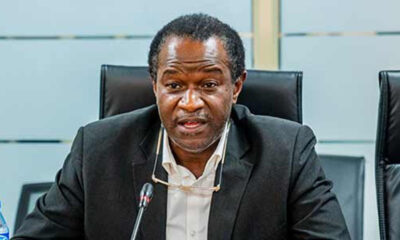Education
Students loan begins Jan 2024, no need for lobby – Gbajabiamila
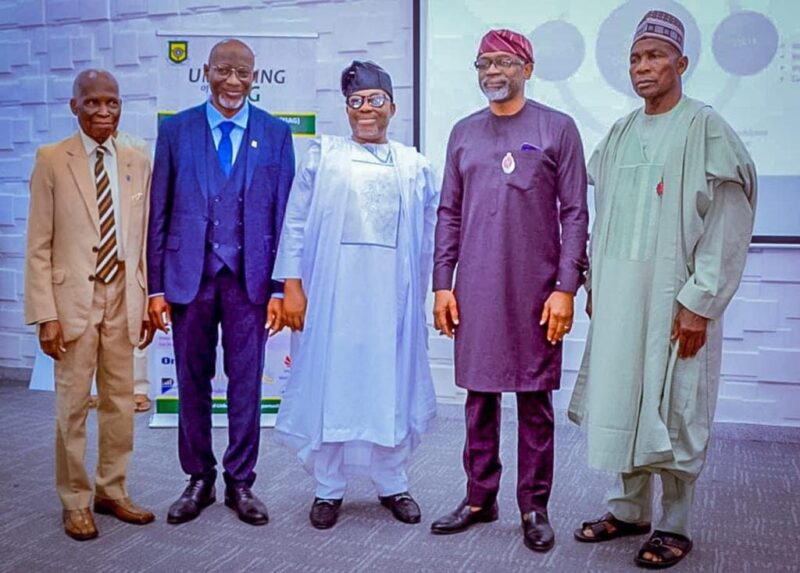
Students loan begins Jan 2024, no need for lobby – Gbajabiamila
Efforts are underway to ensure the commencement of the Students’ Loan Scheme in January 2024, Chief of Staff to the President, Femi Gbajabiamila, has said.
He also said Nigerian students would need no lobby to access the loans “to fund their educational aspirations”.
He spoke in Lagos on Friday while delivering a lecture titled, “Empowering Nigerian Youths in the Present Day Economy” at the 35th convocation ceremony of Yaba College of Technology (YABATECH).
Gbajabiamila said to make the process seamless, “applicants will apply online, be verified online, and be credited based on the verifiable documents and credentials they have submitted.”
He said, “Earlier this year, His Excellency President Bola Ahmed Tinubu GCFR signed the Students’ Loan (Access to Higher Education) Act, establishing the Education Loan Fund and creating a new legal framework to provide education financing through interest-free loans to Nigerian students. “
“The application system for the student loan programme is being designed so that there is no interface between the loan administrators and the beneficiaries,” he added.
The CoS said, “Applicants will apply online, be verified online, and be credited based on the verifiable documents and credentials they have submitted. Nobody will need to know anybody to qualify for these loans, so that access to this financing will be genuinely egalitarian.
“The student loan system answers part of the question of how to fund a quality public tertiary education, but it doesn’t answer all of it.
“Any serious conversation about the future of tertiary education in Nigeria must include a thorough consideration of the ways and means of addressing the funding needs of public tertiary institutions beyond government subvention.
“In this regard, we cannot for much longer avoid the simple truth that tertiary education costs money, and the best institutions worldwide succeed, amongst other things, because they can generate significant sums through fees, investments and other means.
“The simple truth is that for our institutions to compete favourably, we need more resources than are currently available to address the dangerous decline in the quality of scholarship and academic output and the graduates we produce from many of our institutions.”
He said in a perfect world, access to education would be a fundamental benefit afforded to every individual from basic through tertiary.
Gbajabiamila said, “Our learning centres will be majestic citadels of research and innovation, open to all who seek knowledge, regardless of means. But this is not a perfect world. In this real world, education is a commodity and a quality education even more so.
“Therefore, the central public policy challenge is the conflict between the competing objectives of access and quality. How do we fund a quality tertiary education without imposing costs that make access to quality education impossible for most people?
“We require a programme of aggressive and sustained investment in education. Not only in the physical infrastructure of classrooms and lecture halls but in technology hardware and software to facilitate information exchange and innovation.
“In this new world, we have found ourselves in, nothing has changed as drastically as the nature of work and how we measure productivity. Today, many skills that guaranteed employment and a healthy income for previous generations have been made redundant by technological advances.
“This generation will not only be competing with one another for opportunities, but they will also be competing in a global marketplace, against students from all over the world, and against technology, including Artificial Intelligence (AI) tools, blockchain and financial technology tools that are increasingly replacing the human function in the workplace. We must prepare them with these realities in mind.
“To do this effectively, we need to develop a new understanding of the changing nature of work and the future of employment.”
Rector of the college, Dr. Ibraheem Abdul, said the institution focused on youth empowerment through its various programmes.
“To show how committed we are to the empowering of our youths, the management established Industry Advisory Committee to enhance her dynamic role of producing technical manpower for the Economic and Social development of Nigeria,” he said.
According to him, the college has been in the forefront of manpower development, technological advancement and youth empowerment.
Some of the initiatives targeted at youth empowerment put in place by the school as highlighted by the rector are the Quadruple Helix Collaboration Scheme for Youth Empowerment; the establishment of Centre for Technology Marketing and Product Development; YCT Industry Alliance Group (YIAG) Programme; the Students Work and Study Scheme, among others.
Education
FG announces 2025/2026 overseas scholarship for graduates (See how to apply)

FG announces 2025/2026 overseas scholarship for graduates (See how to apply)
The Federal Government, through the Petroleum Technology Development Fund (PTDF), has opened applications for the 2025/2026 edition of its Overseas Postgraduate Scholarship Scheme (OSS), targeting academically qualified Nigerian youths.
In an announcement shared via PTDF’s official handle on X (formerly Twitter), the agency revealed that the revamped scholarship programme is geared toward developing local expertise for the nation’s oil and gas sector.
“The Petroleum Technology Development Fund (PTDF) is pleased to bring to the notice of the public that the applications for the 2025/2026 Overseas Postgraduate Scholarship Scheme (OSS) has commenced,” the statement reads.
Eligible candidates can apply for fully funded master’s or doctoral studies in several international locations, including the United Kingdom, Germany, France, and Malaysia, as well as at the PTDF College of Petroleum and Energy Studies in Kaduna.
According to the agency,“Fully funded MSc scholarship will be provided in the United Kingdom, Germany, France, and Malaysia.”“Fully funded PhD scholarship will be provided in Germany, France & Malaysia.”
READ ALSO:
- Man beats brother’s wife to death in Jigawa
- Niger Gov Bago makes U-turn on dreadlocks ban after backlash
- P-Square: Jude Okoye freed after two months detention
For PhD candidates interested in studying in the UK, the award will now follow a split-site format, combining overseas learning with a local academic base.“Fully funded PhD scholarship for the United Kingdom will now be offered exclusively as a Split-Site Programme at the PTDF College of Petroleum & Energy Studies, Kaduna (CPESK) in collaboration with three partner Universities in the United Kingdom: Robert Gordon University, University of Strathclyde and University of Portsmouth,” the statement further explained.
The scholarship package covers return air travel, health insurance, tuition and bench fees (where applicable), and a living allowance for the duration of the programme.
Applicants must be Nigerian graduates with strong academic credentials in disciplines relevant to the oil and gas industry.
Interested individuals are expected to complete their applications via the PTDF Scholarship Management Portal. The deadline for submission is June 4, 2025.
Additional information on eligibility, programme specifics, and partner institutions is available on the official PTDF website.
FG announces 2025/2026 overseas scholarship for graduates (See how to apply)
Education
FG says colleges of education will begin awarding degrees in September

FG says colleges of education will begin awarding degrees in September
Minister of Education, Tunji Alausa, says a dual mandate allowing colleges of education (COEs) to award both bachelor’s degrees and the National Certificate in Education (NCE) is for implementation this September.
In 2023, the mandate was signed into law, having undergone ideation with numerous committees recommending its adoption.
It was to take effect from the 2024/2025 academic session (starting September 2024), where only federal COEs aged at least 10 years were to pilot the programme.
Alausa spoke in Abuja during a follow-up meeting on resolutions from the last biannual stakeholders meeting.
He said the implementation of the dual mandate will now begin in September 2025.
The education minister said it would boost enrolment in COEs and eliminate the need to convert COEs to universities.
Alausa said reforms within COEs are important for adapting to modern demands and technological advancements.
He urged educators to integrate technology, critical thinking, and computational skills into their curricula.
“We once had a strong educational system, and that’s what we are working hard to restore. All hands are on deck to achieve this,” he said.
“We must tackle the high number of out-of-school children and reduce learning poverty across the country. As teachers, you are at the centre of driving this change, and you must also challenge yourselves.
“The way we taught 30 or 50 years ago is no longer relevant. Education and teaching methods are evolving. You must start thinking about how to use technology in the classroom.”
Alausa stressed the need for educators to harness educational technology and artificial intelligence to improve teaching and learning outcomes.
Addressing declining enrolment in colleges of education, he urged administrators and staff to support the ongoing reforms, warning that the survival of their institutions depends on their ability to adapt.
“With this dual mandate, there is no need for conversion to university status. You should be the ones pushing for implementation, not the other way around. It’s a matter of your survival,” he said.
“The government has secured the future of colleges of education. It is now up to you to sustain them. Failure to embrace this mandate could lead to extinction.
“With this reform, there’s no justification for any college of education to seek university status.”
Education
Kano governor gives secondary students 10,000 free JAMB forms

Kano governor gives secondary students 10,000 free JAMB forms
The Governor of Kano State, Alhaji Abba Kabir Yusuf, has inaugurated the distribution of 10,000 free JAMB forms to Kano secondary school students.
During the flag-off of the distribution, the Governor, who was represented by the state’s Commissioner of Education, Ali Haruna Makoda, also used the opportunity to inaugurate the training of the 10,000 beneficiaries on the use of computer-based tests at various designated centers across Kano State.
On his part, the Governor’s Special Adviser on Education, Alhaji Tajuddin Gambo, said the Governor has promised to provide transport for the beneficiaries throughout the training session and urged them to ensure they pass the examination.
He said the government is willing to select the best schools for the beneficiaries if they pass the examinations.
One of the beneficiaries of the 10,000 free JAMB forms, Fatima Mukhtar Umar, expressed gratitude to Governor Abba Kabir Yusuf for issuing the free JAMB forms and promised not to disappoint.
READ ALSO:
- N10m raised to relocate boy who faced Peter Obi convoy — Lawyer
- Delta Governor’s aide, Shimite, dies on Easter Monday
- 4 killed, 8 injured in Gombe Easter Monday road accident
In a statement by Governor Abba Kabir Yusuf’s Special Adviser on Information, Ibrahim Adam, it was noted that the Governor used the opportunity to elaborate on the feats achieved by his government in developing the education sector in the last 22 months. These include the re-introduction of foreign and domestic scholarships, re-opening of 21 skills acquisition institutes, general renovation of primary and secondary schools, construction of new classrooms, provision of classroom furniture and writing materials, and the distribution of free uniforms to primary school pupils.
Other achievements, according to the Governor’s Special Adviser on Information, Ibrahim Adam, include the reduction of 50% of registration fees in state-owned tertiary institutions, cash conditional transfers to support girl-child education, and the settlement of registration fees for NECO, NABTEB, and NBAIS, to mention but a few.
Ibrahim Adam said Governor Abba Kabir Yusuf urged all the beneficiary students to make the best use of the opportunity and strive for excellence in their academic pursuits, saying that the future belongs to those who work tirelessly to turn dreams into realities.
Kano governor gives secondary students 10,000 free JAMB forms
-

 metro3 days ago
metro3 days agoRivers: Tinubu meets with Fubara, may lift his suspension
-

 metro2 days ago
metro2 days agoI’m not in supremacy battle with Ooni, says new Alaafin
-

 Entertainment1 day ago
Entertainment1 day agoP-Square: Jude Okoye freed after two months detention
-

 metro3 days ago
metro3 days agoBandits attack Kwara North, kill vigilante, six others
-
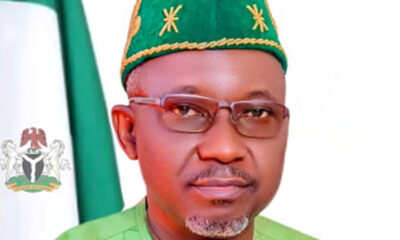
 Business2 days ago
Business2 days agoNigeria’s gas production increases by 15.6% to 227,931.65 mscf
-
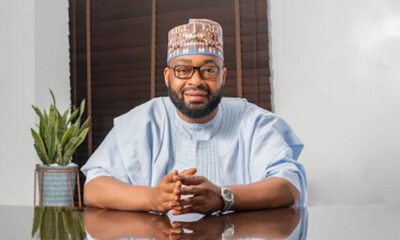
 metro1 day ago
metro1 day agoNiger Gov Bago makes U-turn on dreadlocks ban after backlash
-

 News1 day ago
News1 day agoJust in: Factional Zamfara assembly leaders want governor to represent budget
-
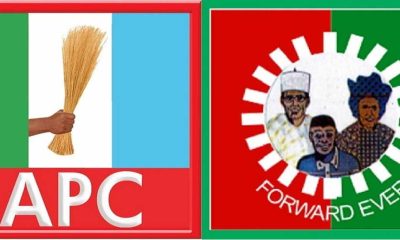
 Politics1 day ago
Politics1 day agoLabour Party collapses into APC in Plateau

